Artificial Intelligence
Penn State’s history as a pioneer in interdisciplinary research and its status as a leader in artificial intelligence, machine learning, and data science makes it an ideal place for organizations that want to collaborate with artificial intelligence and machine learning scholars and for students who hope to study alongside some of the world’s most renowned researchers in the field.
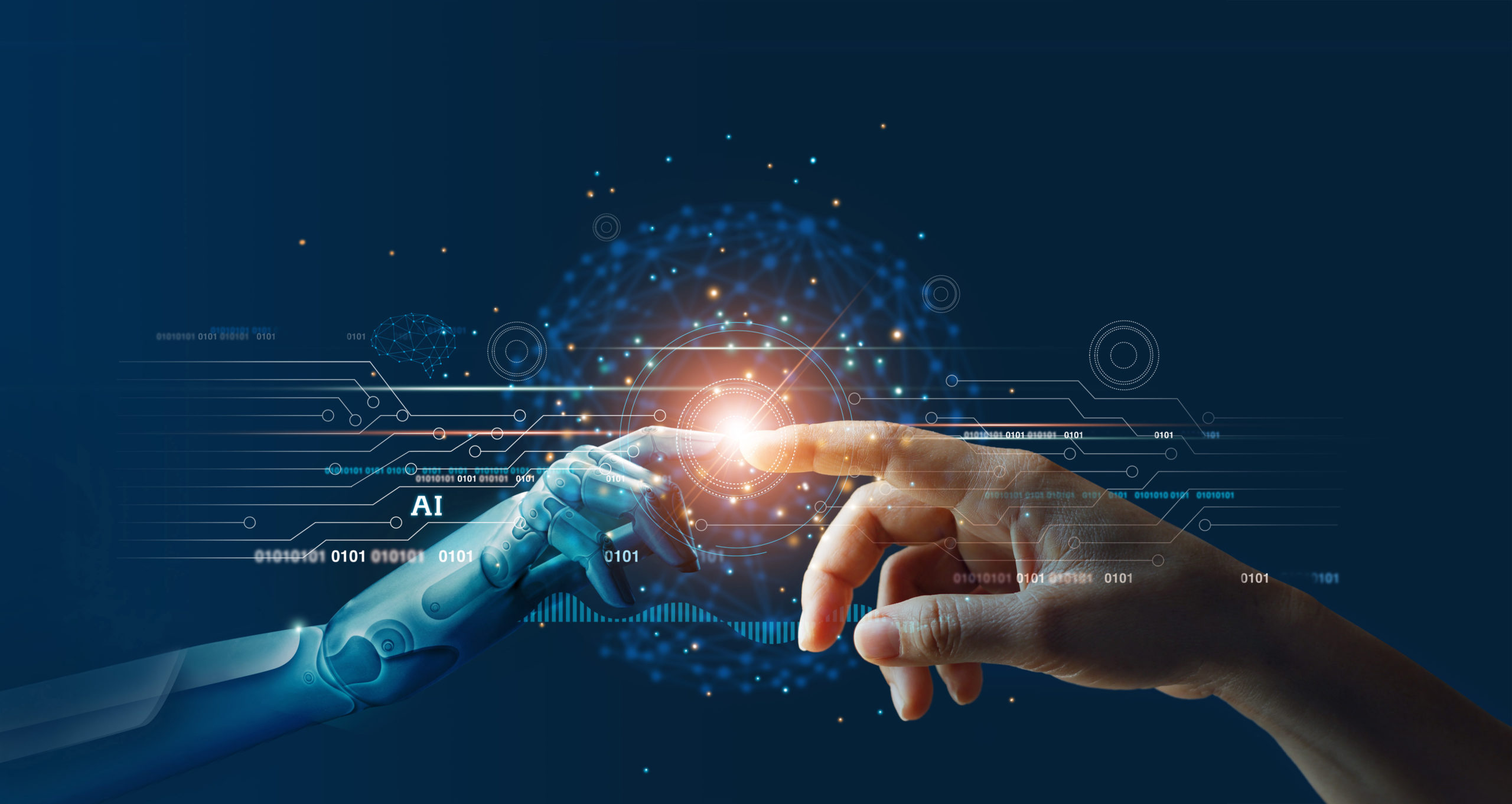
Innovative Leader in Artificial Intelligence
Penn State’s Institute for Computational and Data Sciences connects thousands of Penn State researchers from different disciplines who are using artificial intelligence, machine learning, and data science to tackle pressing issues facing society today, from optimizing the power grid, to improving students’ learning outcomes, to identifying diseases in crops in developing countries, to understanding the nature and history of the universe. The institute also operates Penn State’s supercomputer, which has the power of more than 36,000 traditional computers working together. Here are just a few examples of Penn State researchers’ groundbreaking work:
- Making the Internet Faster: A team led by Penn State researchers designed a machine-learning algorithm to reduce the size of multimedia files, such as videos and images, and restore them without losing much quality or information. The system could help solve the world’s huge data clog problem.
- Clickbait Detector: Penn State researchers trained an artificial intelligence model that outperformed other clickbait detectors. The technology not only may be used to help people safely navigate the web and social media, but might also help developers create even better algorithms, in general.
- Weather Forecasters: Penn State researchers are using artificial intelligence to pinpoint swift-changing weather areas to help meteorologists produce more accurate weather forecasts more efficiently.
- Revealing the History of Humankind: Penn State archaeologists led an effort to use a machine learning algorithm to scour through remote sensing data, such as satellite imagery, to find ancient human settlements – and maybe even solve some of anthropology’s biggest mysteries.
- Artificial Intelligence is the development of autonomous systems that companies can use to supplement workforce interaction or decision-making processes.
- Machine Learning is the process of developing algorithms from data science models to give insights on behaviors to predict future opportunities.
- Data Science is the ability to take a company’s data (financial, operational, customer, other) and stage it to allow for better decision making based on their industry.
Resources and Links
Nittany AI Alliance
The Nittany AI Alliance creates programs that bring together students, faculty, staff, and industry leaders to address real-world problems through experiential learning projects that make extensive use of cutting-edge artificial intelligence technology. Programs include the Nittany AI Challenge, a nine-month competition for teams of undergraduate students to contend for prize money by developing and presenting artificial intelligence-based solutions that solve real-world problems.
Institute for Computational and Data Sciences
The Institute for Computational and Data Sciences is one of seven interdisciplinary research institutes at Penn State. The institute brings researchers together to develop and apply innovative, high performance computation methods.
Data Sciences Degree Program
Established in 2016, the Data Sciences degree program at Penn State is the first multi-college degree program designed to meet the growing need of trained data science professionals. The interdisciplinary program educates students on the technical fundamentals of data sciences, with a focus on developing the knowledge and skills needed to manage and analyze large-scale, unstructured data to address an expanding range of problems in industry, government, and academia.
Smart Home Research Initiative
This initiative advances the area of Smart Home Research with the hub at Penn State Harrisburg. This hub will find ways to adapt current approaches to the technologies employed in homes, retirement facilities and in hospitals to expand the monitoring of people so that their lives can be improved. It will also explore what barriers exist to the implementation of these new technologies including needs in education, policy, cybersecurity, and social integration. This activity would capitalize on an extensive network of supporting enterprises and organizations that have a vested interest in advancing smart technologies for homes and healthcare in our region.
$45M
invested into research cyberinfrastructure
To find out how your company can engage with Penn State’s work around artificial intelligence, machine learning, and data science, contact us today.
Featured Events
Our featured events highlight signature corporate engagement opportunities from around the University.
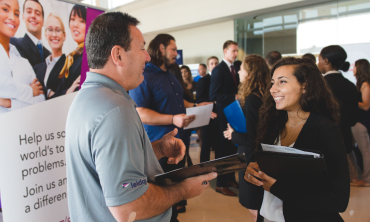
Career Fairs
Biannually Spring and Fall
Held every spring and fall semester, Penn State Career Fairs provide opportunities to meet your internship, co-op, and full-time recruiting needs.
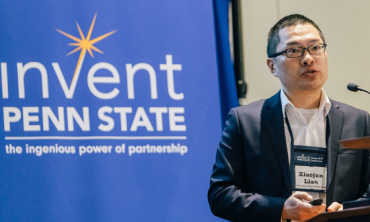
Invent Penn State Venture & IP Conference
Annually in the Fall
The Invent Penn State Venture & IP Conference is one of the largest tech startup conferences in the Mid-Atlantic.
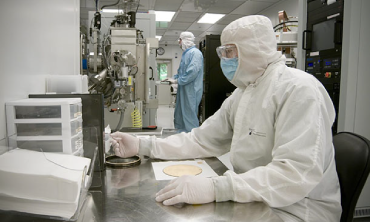
Materials Day
Every October
Hosted by the Materials Research Institute, this event spotlights faculty research, offers student engagement, and opportunities to participate in formative discussions on trends and opportunities in materials research.
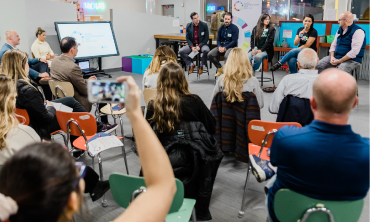
Global Entrepreneurship Week (GEW)
Every November
GEW Penn State, managed by the Penn State Small Business Development Center (SBDC), celebrates relationships between members of the University and the local entrepreneurial communities.

